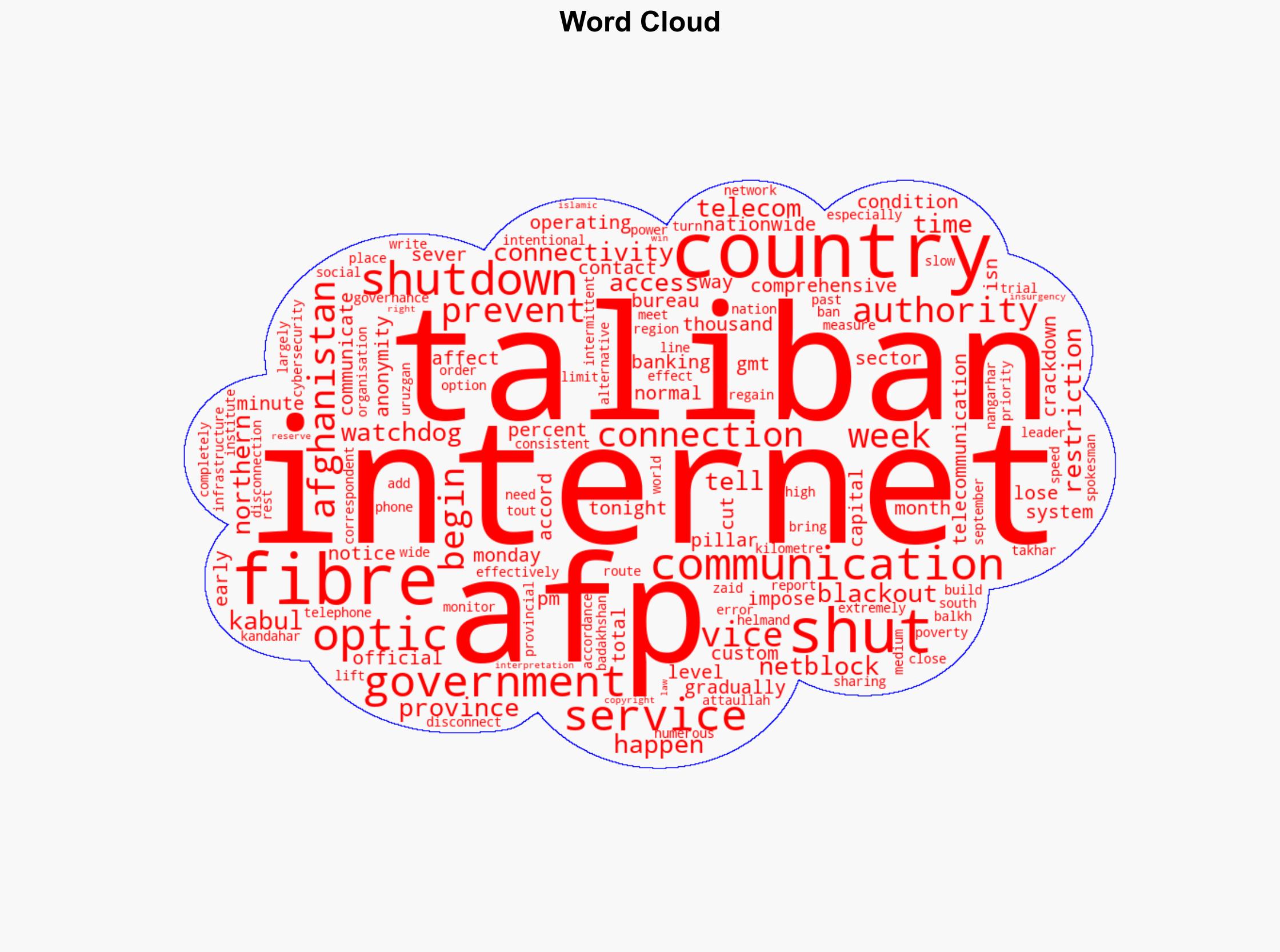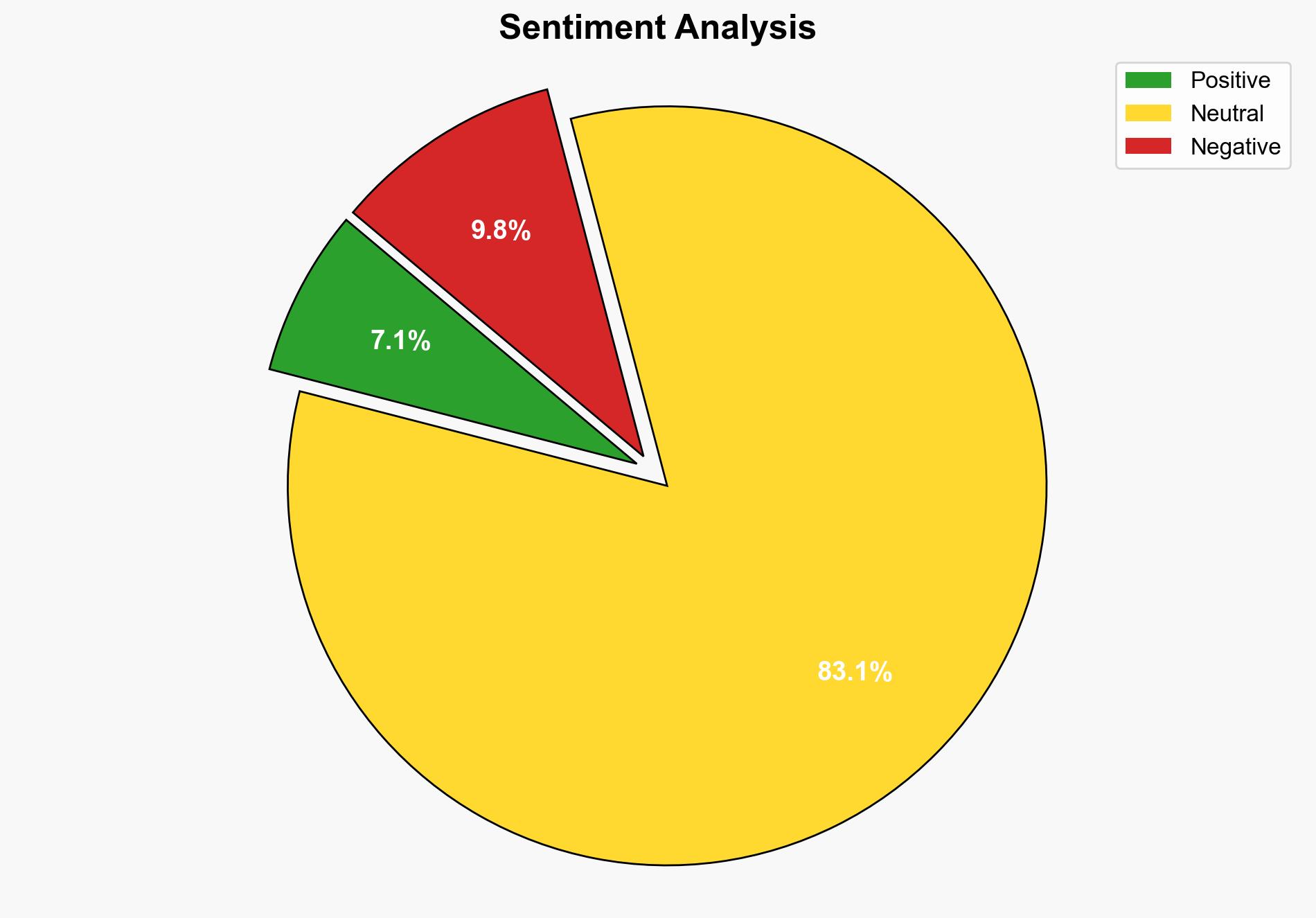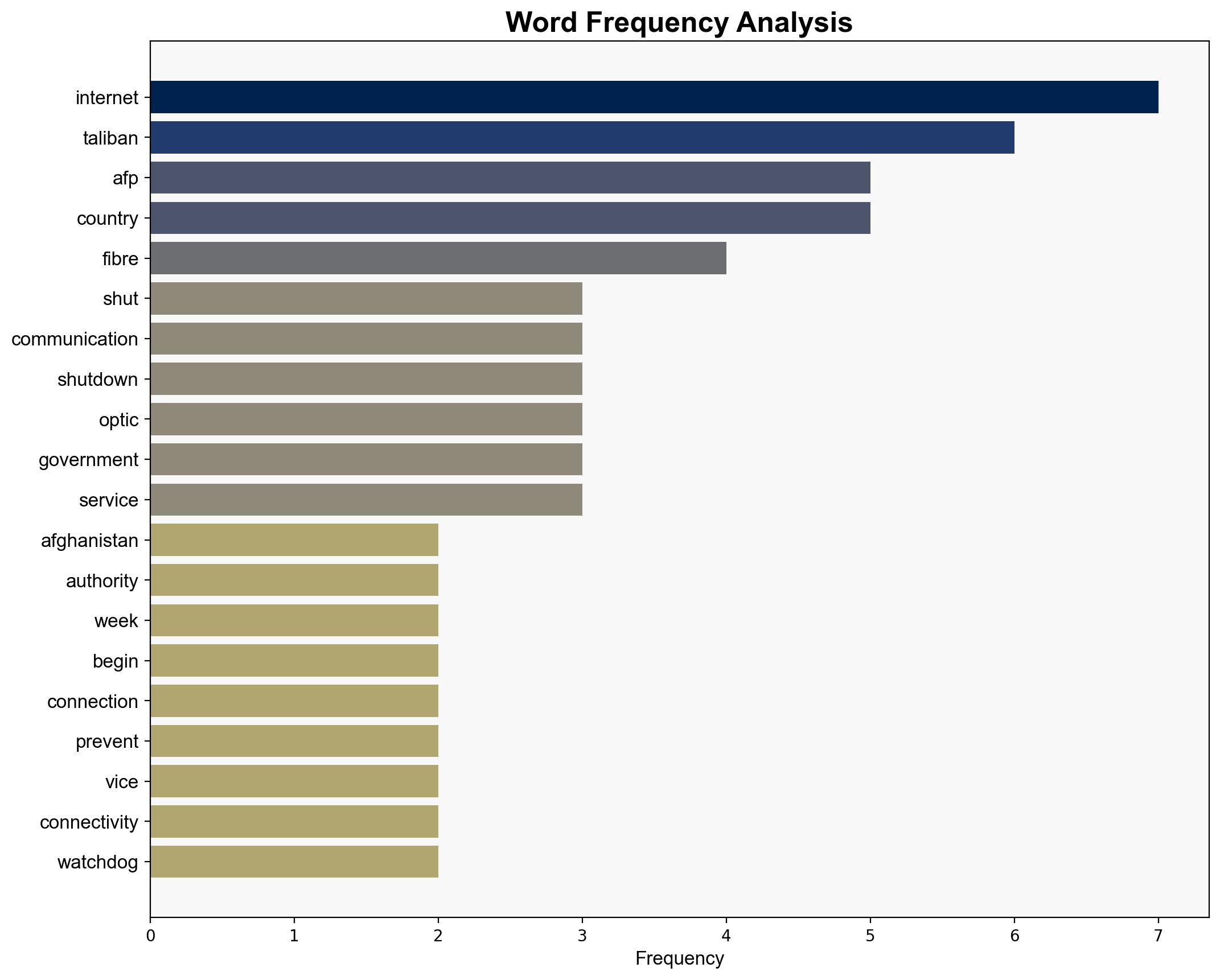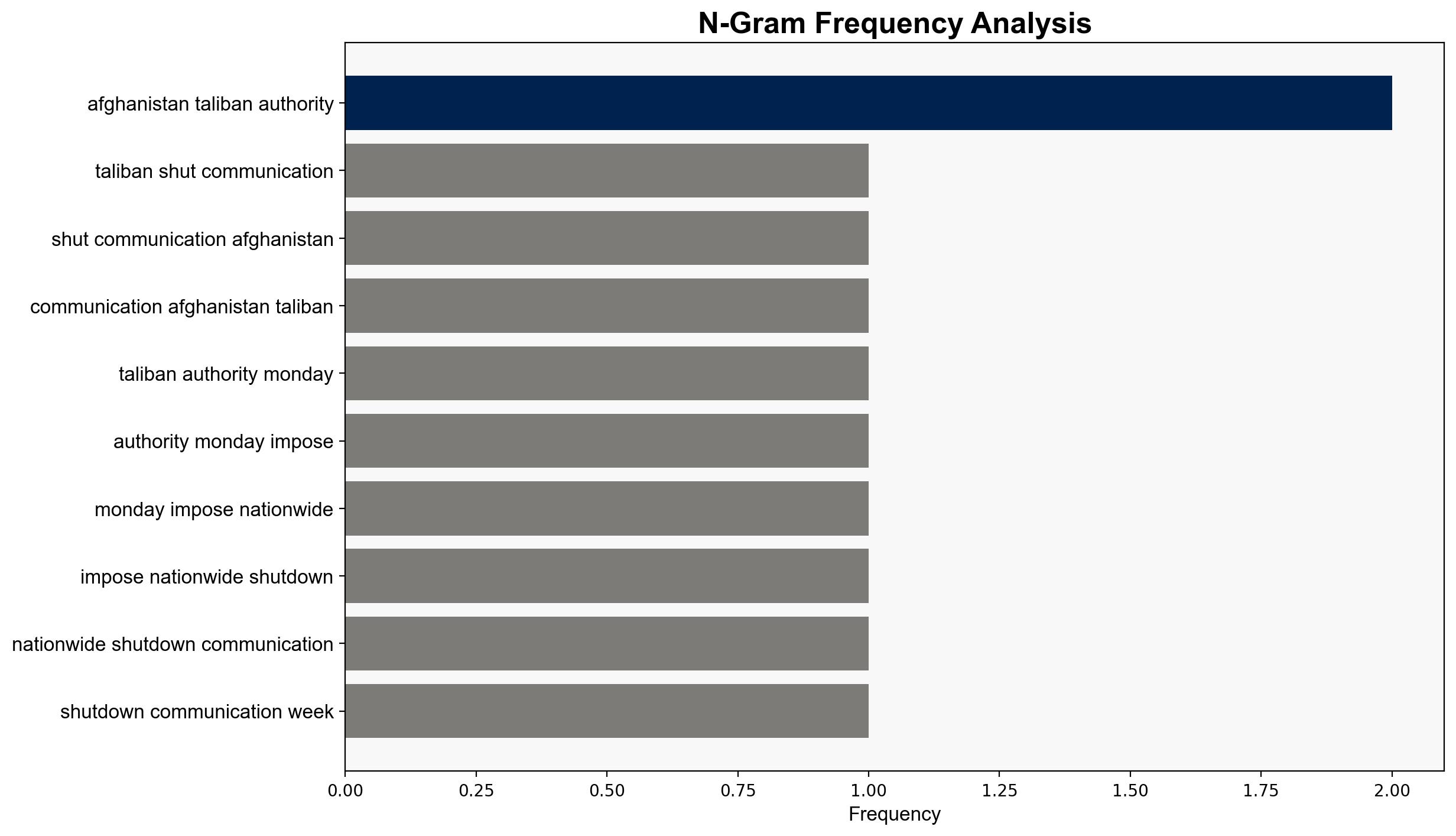Taliban Shut Down Communications Across Afghanistan – International Business Times
Published on: 2025-09-29
Intelligence Report: Taliban Shut Down Communications Across Afghanistan – International Business Times
1. BLUF (Bottom Line Up Front)
The most supported hypothesis is that the Taliban’s communication shutdown is a strategic move to consolidate control and prevent dissent. Confidence level is moderate due to limited corroborative data. Recommended action includes enhancing monitoring of regional communication channels and engaging with international partners to assess the impact on regional stability.
2. Competing Hypotheses
1. **Hypothesis 1**: The Taliban is shutting down communications to consolidate control and prevent dissent. This move is intended to suppress opposition and maintain authority by limiting information flow and connectivity.
2. **Hypothesis 2**: The shutdown is a defensive measure against perceived external threats, such as cyber espionage or foreign influence operations, aiming to protect sensitive information and infrastructure.
Using Analysis of Competing Hypotheses (ACH), Hypothesis 1 is better supported by the evidence of intentional disconnection and historical patterns of the Taliban imposing restrictions to maintain control. Hypothesis 2 lacks direct evidence of external threats prompting such a comprehensive shutdown.
3. Key Assumptions and Red Flags
– **Assumptions**: It is assumed that the Taliban has the capability to execute a nationwide shutdown and that this action is primarily internally motivated.
– **Red Flags**: The lack of direct evidence linking the shutdown to external threats raises questions about the completeness of the intelligence. The anonymity of sources and the gradual nature of the shutdown suggest potential deception or misinformation.
4. Implications and Strategic Risks
The communication shutdown could lead to increased isolation of Afghanistan, impacting economic activities, especially in the banking and customs sectors. It may also exacerbate humanitarian challenges by disrupting aid delivery and information dissemination. Geopolitically, this move could strain relations with neighboring countries and international organizations, potentially leading to increased sanctions or diplomatic isolation.
5. Recommendations and Outlook
- Enhance intelligence gathering on Taliban communication strategies and regional cyber activities.
- Engage with international partners to monitor the situation and assess humanitarian needs.
- Scenario Projections:
- **Best Case**: Limited duration of shutdown with minimal impact on regional stability.
- **Worst Case**: Prolonged shutdown leading to economic collapse and humanitarian crisis.
- **Most Likely**: Temporary disruption with gradual restoration of services under strict Taliban control.
6. Key Individuals and Entities
– Attaullah Zaid (Balkh provincial spokesman)
7. Thematic Tags
national security threats, cybersecurity, counter-terrorism, regional focus





